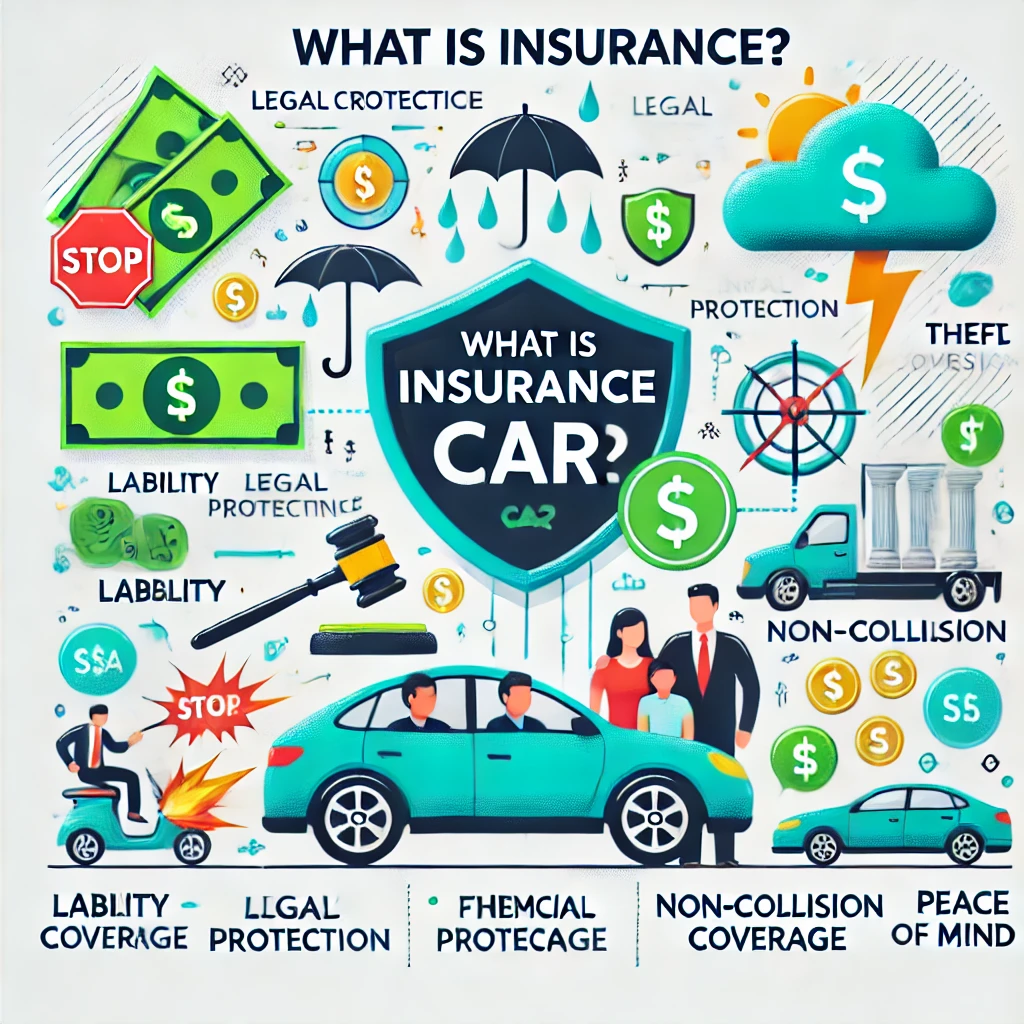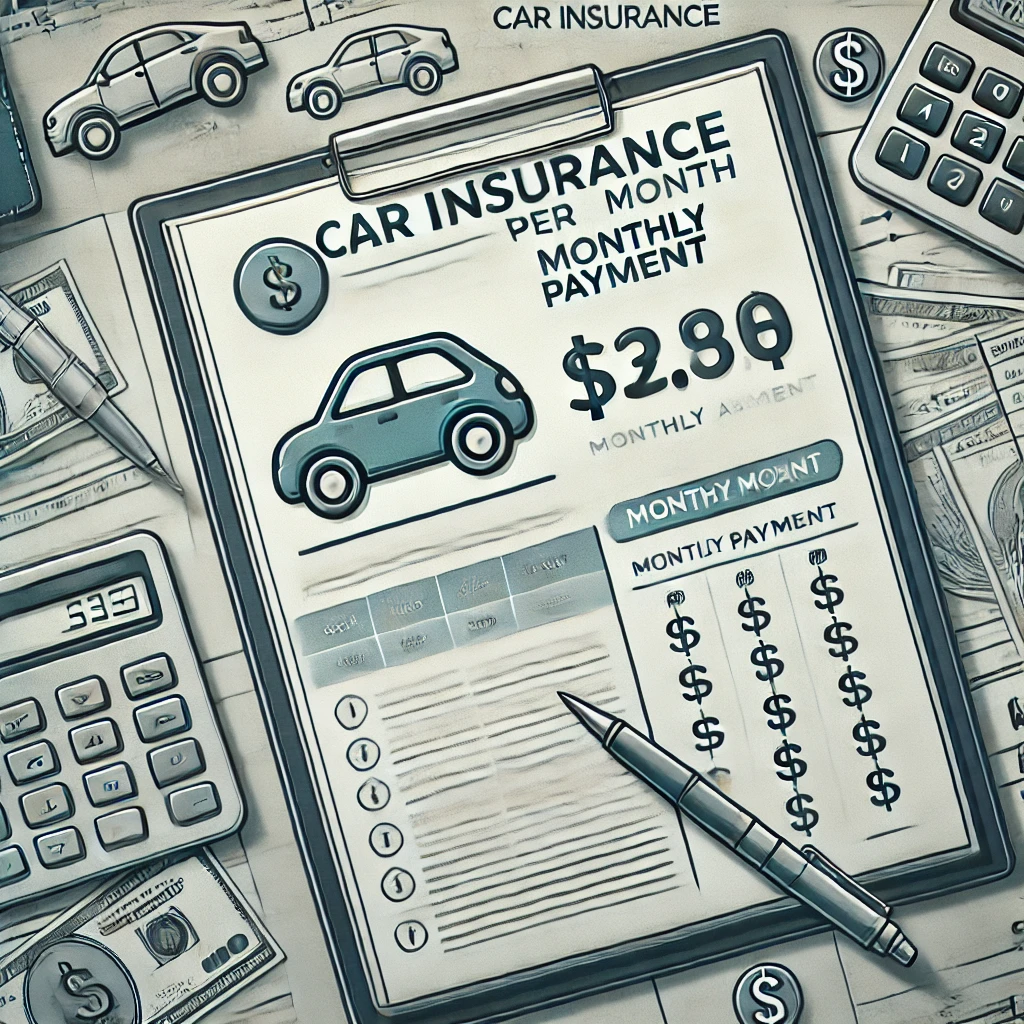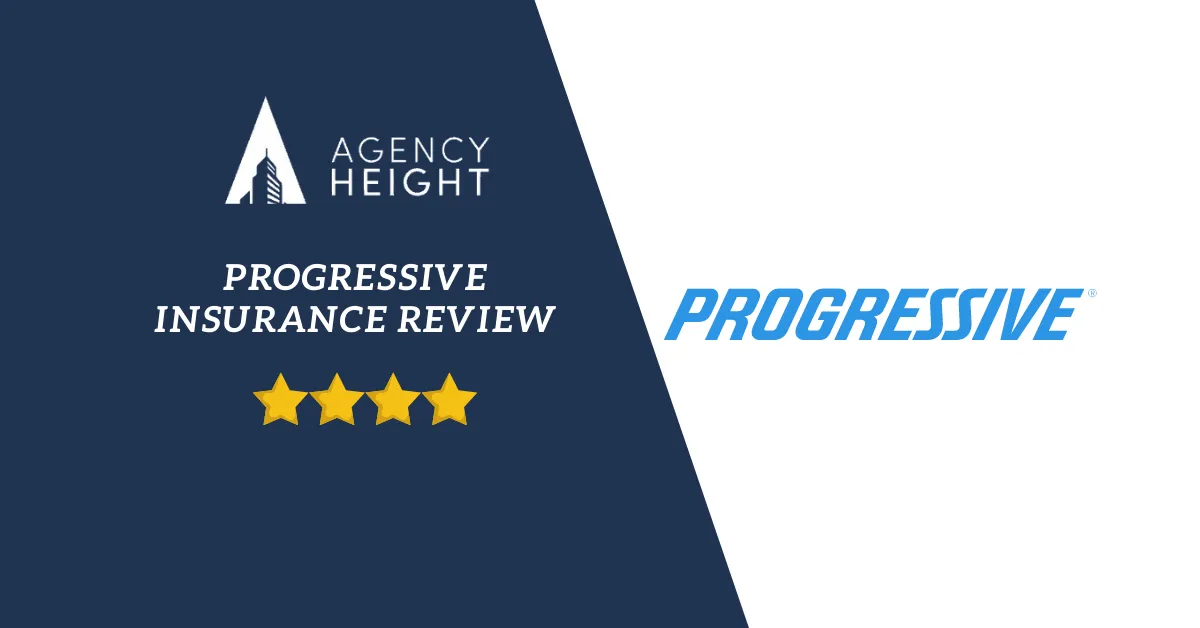When you hear the term “insurance car”, you might wonder, “What does it mean?” Car insurance is an essential safeguard for vehicle owners, providing financial protection in case of accidents, theft, or other unexpected incidents. In this blog post, we’ll dive deep into what car insurance is, why you need it, and how to choose the right coverage for your needs.
What Is Insurance Car?
Insurance car is a term commonly used to describe the coverage provided to protect your vehicle from potential risks and liabilities. In simpler terms, car insurance is a contract between you and an insurance company, where you pay a premium, and in return, the insurer covers specified damages or losses.Insurance Car
Key Components of Insurance
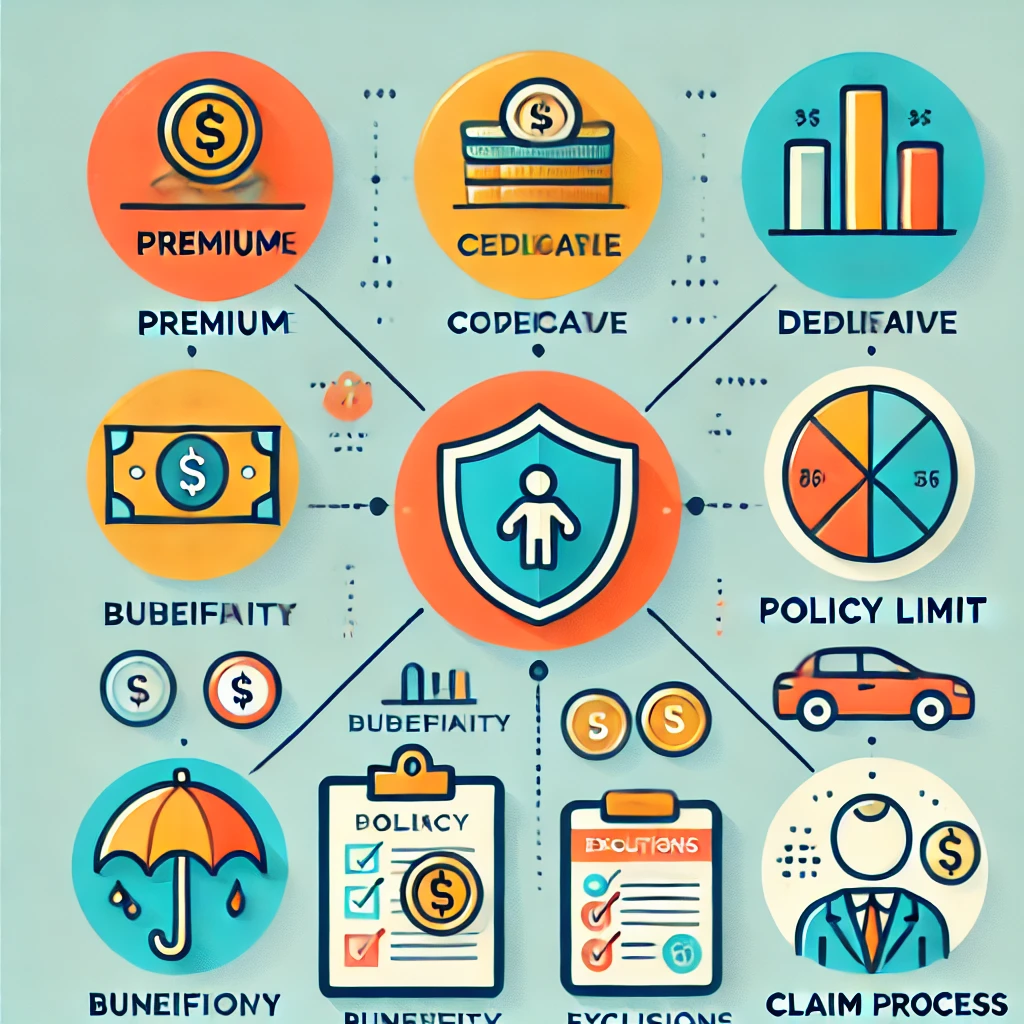
Insurance is a critical tool for financial protection and risk management. Whether it’s car insurance, health insurance, or life insurance, understanding its key components helps you make informed decisions. In this article, we’ll explore the key components of insurance in simple terms.
What Are the Key Components of Insurance?
Every insurance policy is built on foundational elements that define its terms, coverage, and functionality. These include:Insurance Car
1. Premium
The premium is the amount you pay to the insurance company to keep your policy active. It can be paid monthly, quarterly, or annually, depending on the plan. Factors influencing premiums include your age, type of insurance, location, and coverage level.Insurance Car
2. Coverage
Coverage refers to the protection offered by your insurance policy. It outlines what risks or damages the insurer will cover, such as accidents, theft, medical bills, or natural disasters. The broader the coverage, the higher the premium.
3. Deductible
The deductible is the amount you must pay out-of-pocket before your insurance provider starts covering expenses. For example, if you have a $500 deductible and your repair costs are $2,000, you pay $500, and the insurer pays the remaining $1,500.
4. Policy Limit
The policy limit is the maximum amount your insurance company will pay for a covered claim. This can apply per incident or as an overall cap during the policy term. For instance, a health insurance policy might have a $100,000 annual coverage limit. Insurance Car
5. Beneficiary (for Life Insurance)
In life insurance, the beneficiary is the person or entity that receives the payout when the policyholder passes away. It’s important to choose a beneficiary wisely and update the information regularly to reflect life changes.Insurance Car
6. Exclusions
Exclusions are specific situations or events not covered by your insurance policy. For example, most car insurance policies exclude intentional damage or driving under the influence. Always read the fine print to understand what is and isn’t covered.Insurance Car
7. Claim Process
The claim process involves notifying the insurance provider about a loss or damage, submitting the required documentation, and receiving the payout. A smooth claim process depends on accurate and timely reporting.Insurance Car
Why Is Car Insurance Important?
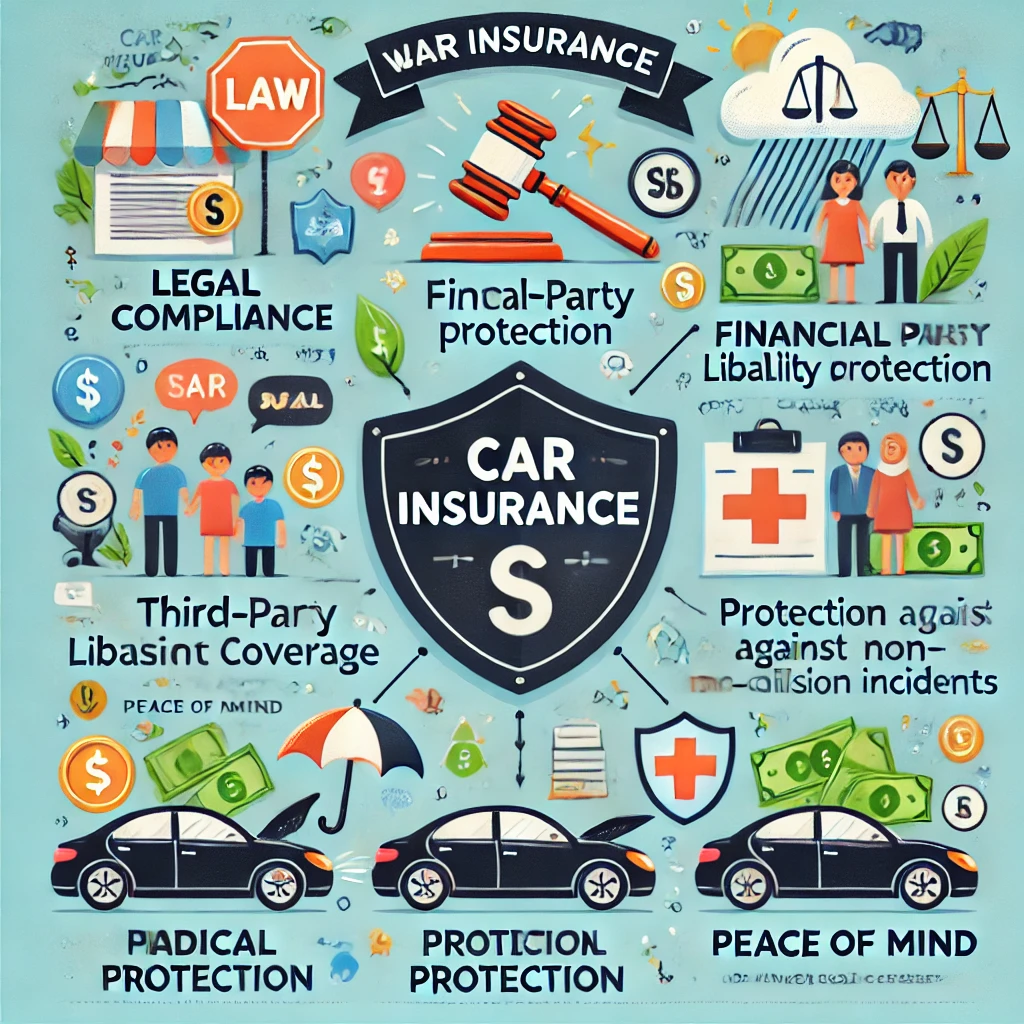
Car insurance is not just a legal obligation—it is a vital financial safety net that can protect you from unexpected costs and stress in the event of an accident or unforeseen circumstances. In this post, we’ll break down why car insurance is important and how it helps you drive with confidence.Insurance Car
1. Legal Compliance
Car insurance is mandatory in many countries. Driving without insurance can result in hefty fines, legal action, or even suspension of your driver’s license. Basic third-party liability insurance ensures you meet the minimum legal requirements to drive.Insurance Car
2. Financial Protection
Car accidents can be expensive. Without insurance, you might have to pay out of pocket for repairs, medical bills, or property damage. Car insurance helps cover these costs, saving you from significant financial .
3. Protection Against Third-Party Claims
If you are responsible for an accident, third-party liability insurance covers damages or injuries caused to others. This protects you from lawsuits or large compensation claims.
4. Coverage for Natural Disasters and Theft
Comprehensive insurance covers more than just accidents. It provides protection against theft, vandalism, fire, and natural disasters such as floods or storms. This ensures peace of mind even in situations beyond your control.
5. Medical Expense Coverage
If an accident occurs, car insurance can cover medical expenses for you and your passengers. Personal Injury Protection (PIP) policies may also cover rehabilitation costs and lost wages.
6. Peace of Mind
Knowing that you are financially protected provides peace of mind. Car insurance allows you to focus on your daily life without constantly worrying about potential risks or accidents.
What Happens Without Car Insurance?
Driving without car insurance can have severe consequences, including:
- Fines and Legal Penalties
- Out-of-Pocket Expenses for Accidents
- Liability for Third-Party Damages
- Potential Vehicle Confiscation
Types of Car Insurance Coverage
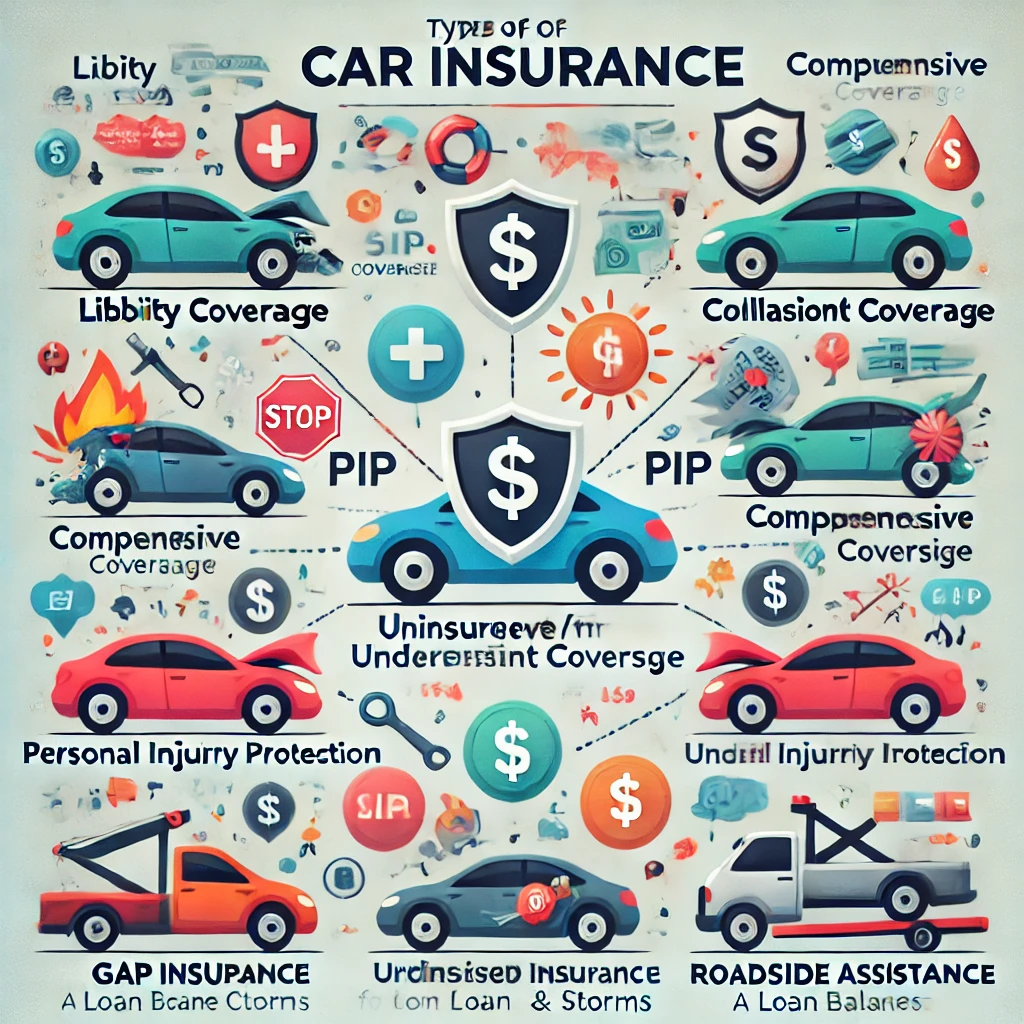
When it comes to protecting your vehicle, understanding the types of car insurance coverage is crucial. Choosing the right coverage ensures that you are adequately protected in case of accidents, theft, or other unexpected events. In this article, we’ll break down the most common types of car insurance coverage, helping you make an informed decision.
1. Liability Coverage
Liability coverage is the most basic and often legally required type of car insurance. It covers:
- Bodily Injury Liability: Pays for injuries caused to others in an accident where you are at fault.
- Property Damage Liability: Covers damages to other people’s property, such as vehicles, fences, or buildings.
This type of coverage does not pay for damages to your car.
2. Collision Coverage
Collision coverage pays for the repair or replacement of your vehicle after a collision, regardless of who is at fault. This includes accidents involving other vehicles or objects, such as poles or trees.
It is particularly important if your car is valuable or financed through a loan.
3. Comprehensive Coverage
Comprehensive coverage protects your car from non-collision-related damages, such as:
- Theft
- Vandalism
- Natural disasters (e.g., floods, storms)
- Fire
- Falling objects
This coverage is ideal for areas prone to extreme weather or high theft rates.
4. Personal Injury Protection (PIP)
Personal Injury Protection, or PIP, covers medical expenses for you and your passengers after an accident, regardless of fault. It may also include:
- Rehabilitation costs
- Lost wages
- Funeral expenses
This type of coverage is mandatory in some states and optional in others.
5. Uninsured/Underinsured Motorist Coverage
This type of coverage protects you if you’re in an accident with a driver who:
- Does not have insurance (uninsured motorist).
- Does not have enough insurance to cover the damages (underinsured motorist).
It covers both bodily injuries and property damage caused by uninsured or underinsured drivers.
6. Gap Insurance
Gap insurance is designed for people who have financed or leased their cars. If your car is totaled, this coverage pays the difference between the car’s actual cash value (ACV) and the amount you still owe on the loan or lease.
7. Roadside Assistance Coverage
Optional roadside assistance coverage provides help when your car breaks down, such as:
- Towing services
- Flat tire changes
- Battery jump-starts
- Emergency fuel delivery
It’s an affordable add-on for drivers who travel long distances or own older vehicles.
8. Rental Reimbursement Coverage
If your car is in the shop after an accident, rental reimbursement coverage pays for a rental car while yours is being repaired.
This is an optional but convenient add-on for drivers who rely on their vehicles daily.
Conclusion: What Is Insurance Car?
In summary, “insurance car” refers to the various types of car insurance policies designed to protect you, your vehicle, and others on the road. Car insurance is not just a legal requirement; it’s a vital financial tool that provides security against accidents, theft, natural disasters, and unforeseen expenses.
By understanding the types of car insurance coverage available—such as liability, collision, comprehensive, and personal injury protection—you can make informed decisions that suit your needs and budget. Car insurance ensures peace of mind, enabling you to focus on the road ahead without worrying about the unexpected.
Read
